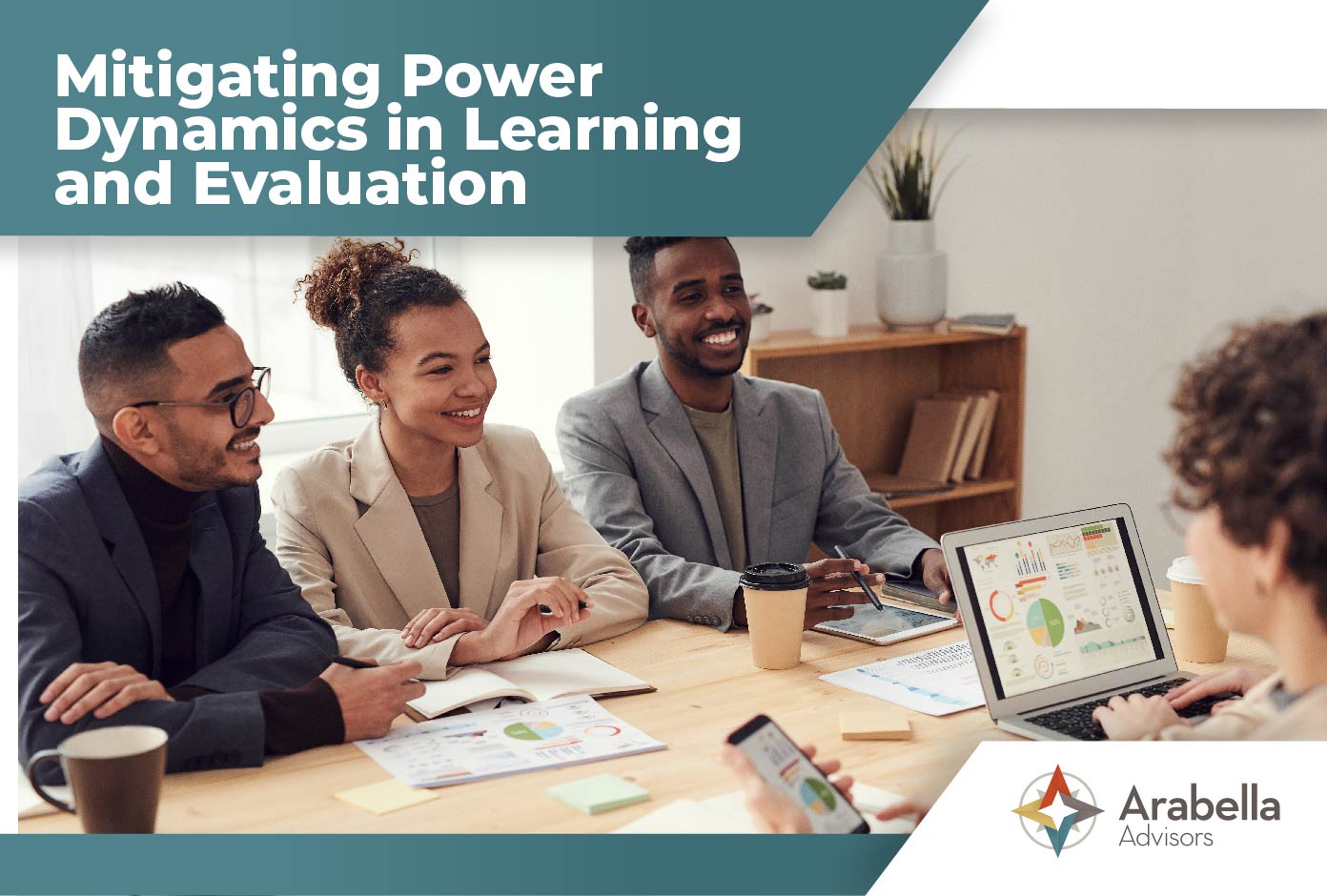Mitigating Power Dynamics in Learning and Evaluation

Arabella’s Learning and Evaluation team recently helped facilitate a session at the American Evaluation Association’s annual conference titled “Mitigating Power Dynamics: Turning the Evaluative Lens onto Funders.” We had two goals for the session: to share our experiences with disrupting power dynamics while evaluating philanthropic initiatives and to offer a forum for other evaluators to do the same.
Not surprisingly, we heard that power imbalances are ever-present challenges to promoting equity and transparency and to centering those most affected by our learning and evaluation efforts. We also heard a shared sense that it is our responsibility as practitioners of equitable evaluation to help funders examine their own practices. After all, when it comes to monitoring, evaluation, and learning, issues related to power can become particularly acute, and too often lead to negative experiences for funders and grantees alike. For example, funders may bring misleading expectations, assumptions, and frames to the work and impose them unwittingly on grantees via learning and evaluation processes that thereby distort the grantees’ efforts, leading to frustration and misunderstanding all around.
Session participants also recognized that philanthropy is inextricably linked with power—the power to give, the power to set the agenda, and the power to hold others to account. What’s more, power dynamics (sometimes explicit, sometimes implicit) inform the ways we design and evaluate philanthropic initiatives. Thankfully, a growing number of funders are becoming conscious of the potentially distorting effects of these power dynamics within the sector and exploring ways to operate differently and better. This is especially important at a time when many funders are making or renewing commitments to equity and challenging traditional models of giving.
As the Arabella Learning and Evaluation team reflected on the session and discussed ways we can continue to support equitable evaluation going forward, we found ourselves returning to a handful of best practices that we always recommend to our clients during evaluation engagements. These recommendations are only the start: Fully mitigating power dynamics in philanthropic engagements requires bolder structural changes. Still, by taking these steps, funders can help move philanthropy in the right direction.
- Use methods that reduce burden on grantees. Equitable evaluation requires that we think carefully about what we are asking grantees to do for us and that we avoid relying on them to do the burdensome work of collecting data or compiling reports whenever possible. Our practice is committed to ensuring that most of the burden and labor for our evaluations is carried by the evaluator, while still centering the voices of grantees and ensuring that our process is guided by their insights.
- With the above in mind, only collect data you intend to use. This may seem straightforward, but we have found that funders often ask for data without knowing how they will use it. We encourage funders to start with a few simple questions—what do you want to know and why do you want to know it?—before creating monitoring and accountability guidelines for their grantees.
- Compensate stakeholders who contribute to learning. Contributing to an evaluation effort, whether it’s via direct data collection, participation in interviews or focus groups, or compiling reports for funders, is labor. We encourage funders to compensate stakeholders for their time and effort in helping them to learn.
- Approach evaluation as a participatory process and learning tool. We approach learning and evaluation as a process that brings value to both the funder and the grantee. The goal of an evaluation should never be punitive in nature; rather, funders should invest in evaluation as a commitment to learning with and from their grantees, improving their own processes, and strengthening their support of grantees and their work.
If you have additional ideas about mitigating power dynamics in philanthropy, we would love to hear from you. Contact us.
Gabrielle Plotkin, MS, and Shannon Stagman, MA, are associate directors and members of Arabella Advisors’ Learning and Evaluation practice. Alongside their teammates, they help philanthropists and their partners to reflect and learn by gathering, organizing, and synthesizing relevant information, allowing them to go from idea to impact. They co-developed and presented the American Evaluation Association session with Kheira Issaoui-Mansouri, a program officer at the Irving Harris Foundation and an Arabella alum.
